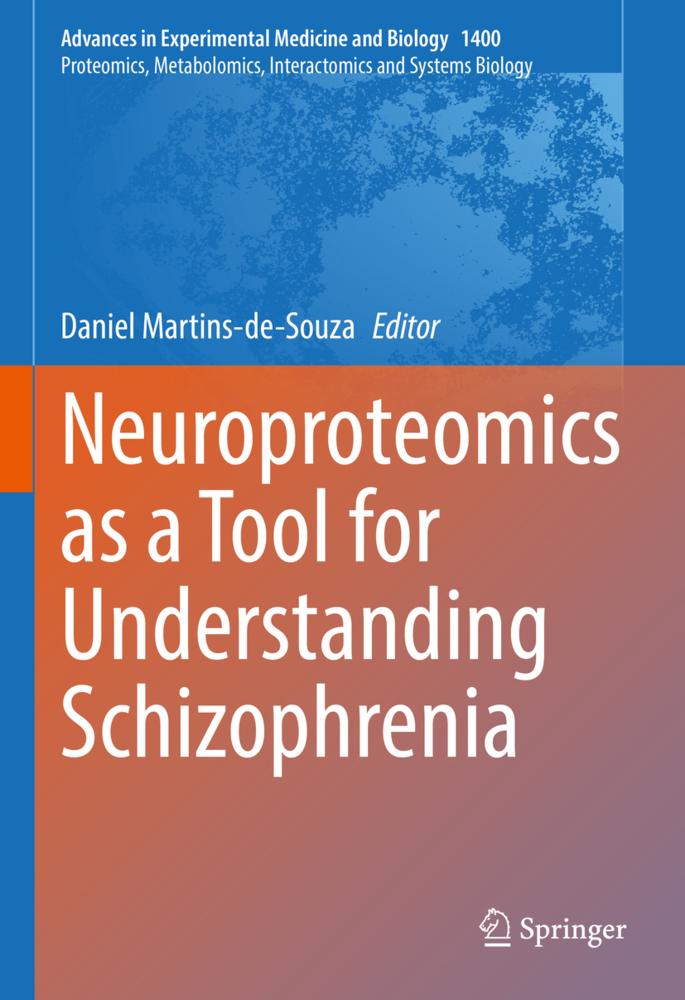Neuroproteomics as a Tool for Understanding Schizophrenia
Over the past decade, neuroproteomics has shed light on the molecular features of schizophrenia by depicting biological processes involved with its establishment, maintenance and treatment. These studies have also pointed to potential biomarkers applicable to diagnosis and medication monitoring. Edited by a leader in the field of neuroproteomics with contributions from subject experts, this new volume will address recent findings and compile evidence from difference perspectives-such as human samples, animal models, pluripotent stem cell-derived in vitro pre-clinical models-and provide findings to inform the development of innovative future treatment strategies.
This volume will be useful for a broad audience of researchers and professionals, including biologists, neurologists, psychiatrists, analytical chemists, and pharmacists, among others.
1. Postmortem brains: what can proteomics tell us about the sources of schizophrenia?.- 2. What can we learn from animal models to study schizophrenia?.- 3. Modeling schizophrenia in vitro: challenges and insights on studying brain cell.- 4. Schizophrenia outside the brain.- 5. Molecular features triggered by antipsychotic medication in brain cells
6. Known and Unexplored Post-Translational Modification Pathways in Schizophrenia.- 7. Molecular findings guiding the modulation of the endocannabinoid system as a potential target to treat schizophrenia.- 8. Metabolomics: A powerful tool to understand the schizophrenia biology.- 9. Modulating specific pathways in vitro to understand the synaptic dysfunction of schizophrenia.- 10. Proteomics and schizophrenia: the evolution of a great partnership.Martins-de-Souza, Daniel
| ISBN | 978-3-030-97181-6 |
|---|---|
| Artikelnummer | 9783030971816 |
| Medientyp | Buch |
| Auflage | 1st ed. 2022 |
| Copyrightjahr | 2022 |
| Verlag | Springer, Berlin |
| Umfang | VIII, 143 Seiten |
| Abbildungen | VIII, 143 p. 12 illus., 11 illus. in color. |
| Sprache | Englisch |











